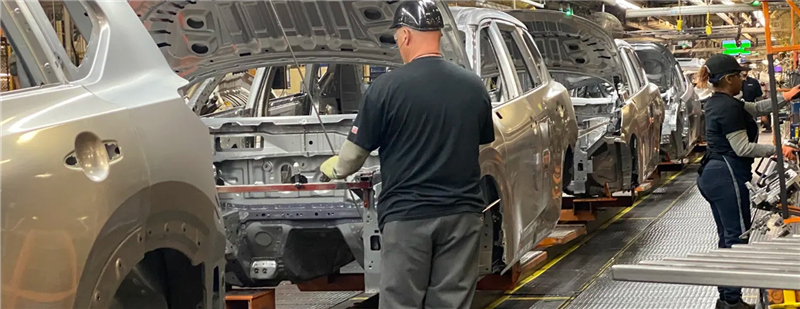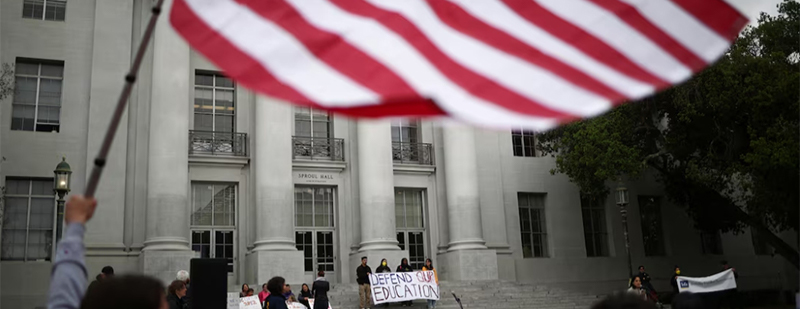-
田士臣、张博涵:美国是如何利用其亚洲盟友与中国展开大国竞争的
How the US uses its Asian allies in great-power competition with China | South China Morning Post
As US Deputy Secretary of State Wendy Sherman wrapped up her by-the-way visit to China – the subject of intense negotiation, with the two countries unable to agree on the proposed engagement until the very last minute – US Secretary of Defence Lloyd Austin kicked off his visit to America’s allies in Southeast Asia, namely Singapore, Vietnam and the Philippines.
Austin’s high-profile visit to Asia aims to reaffirm the new administration’s commitment as “a reliable partner”. In remarks before the trip, Austin referred to these destinations as America’s “priority theatre of operations” and said the major goal of his visit was to strengthen the “powerful network of allies and partners in the region”.
Further, he said, he would take the opportunity to make clear the US stance on challenging what he called “unhelpful and unfounded” claims by China in the South China Sea.
His key message was echoed in his speech in Singapore.
To boost allies’ confidence in America’s military commitment, Austin showcased America’s military muscles: before flying to Asia he visited Alaska’s Eielson Air Force Base, where he made a speech against the backdrop of three F-35 Lightning II aircraft.
In fact, the US is pushing to boost its military presence in the Indo-Pacific to counter the alleged China threat. A few days ago, Captain Michael Luckett, a submarine commander with experience in the Indo-Pacific, took over command of the Guam Naval Command.
Meanwhile, according to the Centre for a New American Security, a Washington-based think tank, the US appears to be moving towards a strategy of “full spectrum competition” in preparation for a possible great-power conflict.
All of the above is consistent with a single message that corresponds to US President Joe Biden’s declaration that “America is back”. But could the US really be back in the Asia-Pacific as it used to be after World War II? Asking this brings more questions than answers.
“We believe that we’re a stabilising force; no matter where we are, what part of the world, we add value to the stability of the region,” said Austin. But while he was making these beautiful official statements, the drawdown of American and Nato forces in Afghanistan is causing chaos.
Hundreds of thousands of civilian and military lives have been lost in the US-led “war on terror” in Afghanistan, yet the prospects for peace and stability in the country remain dim. After nearly 20 years of war, one might ask how the US has contributed to the stability of that region.
And let’s not forget Vietnam and the Korean peninsula. The Korean war and the Vietnam war were humanitarian catastrophes and the aftermath of both wars is still being felt – not least by the Vietnamese who were made refugees by the hostilities and the Korean families parted by war.
It would be interesting to hear Austin extol America’s role as a “stabilising force” in Vietnam when he visits.
In Singapore, Austin pledged that the US would build partnerships that would allow countries to make their own decisions. This is doubtful.
There is a long-standing consensus in Asia and the Pacific that the region depended on China for economic growth and the US for security. But as China’s economy grew to be the world’s second-largest, its increasing global influence inevitably challenges the alliance system that forms the basis for America’s security commitment to its Asian allies.
China’s huge market and abundant economic opportunities are a big draw for other Asian countries. Smaller Asian nations that benefited from the prosperity brought by China’s boom now find themselves more dependent on China than ever before.
This security-versus-development dilemma is further complicated by big-power competition as the hawkish US policy that was imposed on China by the Trump administration is inherited by the Biden administration.
When Austin vows to strengthen America’s network of allies and partners, no one doubts that he is asking these allies and partners to choose sides, the same as the US has done in Europe. Forced to choose, how could these Asian countries exercise their sovereign right of making their own decisions, as Austin promised?
People walk past shops in Beijing on May 12. China’s huge market and abundant economic opportunities are a big draw for other Asian countries. Photo: AP
People walk past shops in Beijing on May 12. China’s huge market and abundant economic opportunities are a big draw for other Asian countries. Photo: AP
Last but not least, no one knows how long this policy of Biden’s administration may last. In 2012, then-US president Barack Obama announced America’s “pivot to Asia”, a doctrine aimed at rebuilding America’s leadership role. Obama’s efforts, however, were soon undermined by his successor, Donald Trump, who preferred unilateral decisions and abandoned many of America’s partnerships with Asia.
The change of government under the US democratic system brings huge uncertainty not only to Asian countries but also to the whole international community.
At a time when fighting the Covid-19 pandemic and restoring the economy are top priorities for the world, international cooperation is more necessary than ever. Yet the US has used every lever it has to push big-power competition.
When its Asian network of allies and partners is also being used to push big-power competition, the dilemma of having to choose a side will be thrust upon nearly every state, like it or not. How much can the US be trusted to deliver on its boast that it plays a stabilising role in the region? That’s the question.
Captain (Retired) Tian Shichen is founder and president of the Global Governance Institution and director of the Centre for International Law of Military Operations in Beijing. He is also a China Forum expert
Leon Zhang is an intern at the Global Governance Institution
(https://www.scmp.com/comment/opinion/article/3142888/how-us-uses-its-asian-allies-great-power-competition-china)
- 原标题:田士臣、张博涵:美国是如何利用其亚洲盟友与中国展开大国竞争的 本文仅代表作者个人观点。
- 责任编辑: 赵珺婕
-

比尔·盖茨夫妇离婚文件正式生效,梅琳达没有要求改名
2021-08-03 08:13 美国一梦 -

美国新增确诊110107例、死亡392例
2021-08-03 06:47 新冠肺炎抗疫战 -

首个领奖台政治抗议出现了…非裔美籍选手摆出这个手势↓
2021-08-02 20:38 东京奥运会 -

外媒:爱立信获中国电信和联通5G项目3%份额,诺基亚出局
2021-08-02 18:59 -

三代女神名场面!郭晶晶陈若琳挤上台“蹭”冠军热度
2021-08-02 18:11 东京奥运会 -

刚发布强制口罩令,美国这位市长就跑去主持婚礼
2021-08-02 17:36 新冠肺炎抗疫战 -

福奇:近1亿美国人不愿接种疫苗
2021-08-02 16:53 美国一梦 -

订单扩大后,辉瑞莫德纳涨价了
2021-08-02 16:53 新冠肺炎抗疫战 -

“美国在非洲还能卷土重来,和中国较量吗?”
2021-08-02 16:46 一带一路 -

7金1银!被“忽视”的中国举重天团有多牛?
2021-08-02 16:43 东京奥运会 -

国际奥委会拒绝呼吁奥运选手在核爆日默哀
2021-08-02 16:31 东京奥运会 -

日本防相又操心起台湾的“生存”了
2021-08-02 15:49 中日关系 -

旅法大熊猫“欢欢”产下一对双胞胎
2021-08-02 15:27 观察动物 -

有爱!张雨霏主动拥抱战胜白血病的日本选手:明年见!
2021-08-02 15:08 东京奥运会 -

英雄惜英雄!奥运会跳高诞生双冠军
2021-08-02 13:45 东京奥运会 -

美防长刚走,他就要提南海问题
2021-08-02 12:30 南海局势 -

白俄罗斯一名女运动员拒绝回国,计划向奥地利寻求庇护
2021-08-02 11:48 东京奥运会 -

缅甸将成立看守政府,他出任总理
2021-08-02 10:02 缅甸局势 -

澳政府斥3800万巨资开发防疫APP,半年仅44人用
2021-08-02 09:40 新冠肺炎抗疫战 -

美国新增确诊32465例、死亡113例
2021-08-02 07:38 新冠肺炎抗疫战
相关推荐 -
 俄军宣布完全收复库尔斯克,乌方否认 评论 50
俄军宣布完全收复库尔斯克,乌方否认 评论 50 “强度极大”!伊朗一港口突发爆炸,已致5死超500伤 评论 103
“强度极大”!伊朗一港口突发爆炸,已致5死超500伤 评论 103 大错特错!“给特朗普献计的人,压根不懂中国” 评论 154
大错特错!“给特朗普献计的人,压根不懂中国” 评论 154 比较见真章,美国车主心态崩了:怎么中国啥啥都有… 评论 119最新闻 Hot
比较见真章,美国车主心态崩了:怎么中国啥啥都有… 评论 119最新闻 Hot-

“哪来的谈判?特朗普在臆想,中国会给他狠狠上一课”
-

俄军宣布完全收复库尔斯克,乌方否认
-

CIA副局长之子在俄乌冲突中死亡,“生前为俄方战斗”
-

“强度极大”!伊朗一港口突发爆炸,已致5死超500伤
-

罗马教皇方济各葬礼举行,英法美等多国领导人出席
-

大错特错!“给特朗普献计的人,压根不懂中国”
-

比较见真章,美国车主心态崩了:怎么中国啥啥都有…
-

特朗普称“克里米亚归俄罗斯”,泽连斯基回应
-

“美国百年优势,特朗普百日玩完,中国要赶上了”
-

领英创始人:若欧洲这么看中国,美国就惨了
-

“特朗普虚晃一招,中国没上钩”
-

日本:中国不买,我们想买美国玉米
-

特朗普:我开玩笑的
-

爱泼斯坦案关键证人自杀,曾称遭英王子性侵
-

“不跟中国做生意,美国货架要空”
-
Copyright © 2014-2024 观察者 All rights reserved。
沪ICP备10213822号-2 互联网新闻信息服务许可证:31220170001
网登网视备(沪)02020000041-1号 互联网宗教信息服务许可证:沪(2024)0000009
广播电视节目制作经营许可证:(沪)字第03952号
增值电信业务经营许可证:沪B2-20210968 违法及不良信息举报电话:021-62376571
![]() 沪公网安备 31010502000027号
沪公网安备 31010502000027号
![]() 中国互联网举报中心
中国互联网举报中心
 上海市互联网违法与不良信息举报中心
上海市互联网违法与不良信息举报中心

 观察员
观察员


